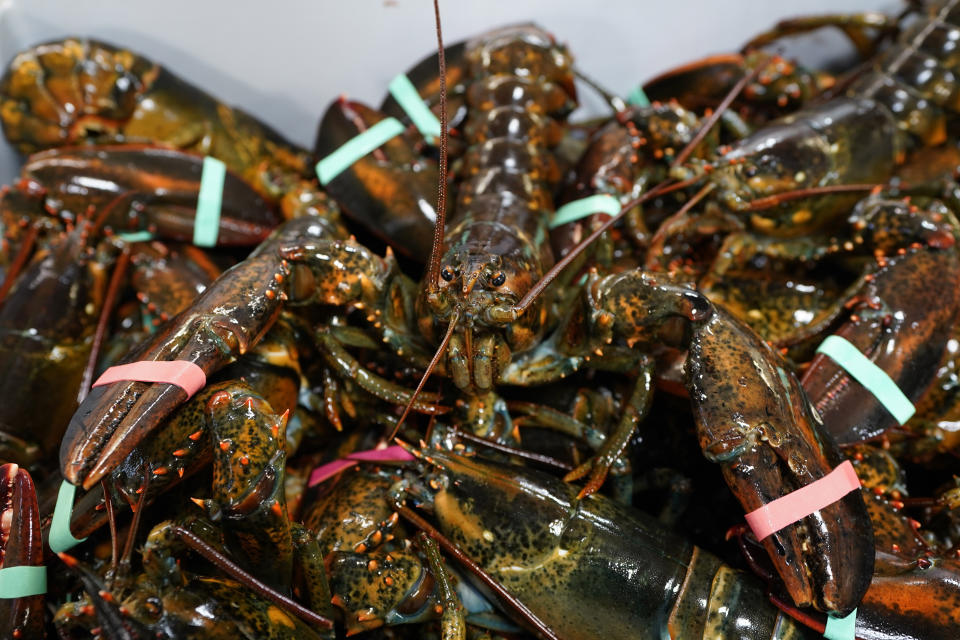
What are the implications of changing legal minimum size limits in lobster fishing?
The Lobster Fishing Industry: A Changing Landscape
The lobster fishing industry has long stood as a pillar of coastal economies, providing significant livelihoods for many fishermen and their families. However, the sector currently faces a range of challenges, not least of which includes proposed changes to legal minimum size limits for lobsters. Fishermen are increasingly voicing their concerns over the potential ramifications of these regulatory adjustments.
🚨Get your crypto exchange secret bonus right now.🚨
Economic Dependency on Size Regulations
Lobster fishermen depend heavily on established regulations concerning legal size limits. Historically, these standards have been put in place to ensure sustainability while allowing fishermen to maintain economic viability. Maintaining a legal minimum size allows fishermen to harvest lobsters that are mature enough to reproduce, thereby aiding in the replenishment of stocks. A delicate balance exists between conservation efforts and the economic needs of those working in the industry.
| Aspect | Impact on Fishermen |
|---|---|
| Legal Minimum Size | Directly affects catch volume |
| Economic Viability | Determines income stability |
| Sustainability | Ensures future viability of stocks |
The ‘Imperiled’ Status of Lobster Fishing
The term “imperiled” resonates heavily with those acquainted with the current state of the lobster fishing industry. Various environmental and regulatory pressures compound to present a multifaceted threat to those engaged in this livelihood.
Environmental Challenges
Overfishing, climate change, and habitat destruction have all contributed to the decline in lobster populations. As these factors converge, fishermen find themselves grappling with the uncertain future of an industry that has sustained generations.
- Overfishing: The pressure on lobster populations has prompted regulatory bodies to consider tighter restrictions.
- Climate Change: Rising sea temperatures and ocean acidification affect lobster growth patterns, complicating harvest forecasts.
- Habitat Loss: Coastal development and pollution have negatively impacted the environments where lobsters thrive.
🚨Get your crypto exchange secret bonus right now.🚨
The Proposed Changes: Size Matters
The discussion surrounding proposed changes to legal minimum size limits has elicited strong reactions from the lobster fishing community. Even small adjustments can lead to significant consequences for fishermen and their livelihoods.
Potential Adjustments and Their Implications
When regulatory bodies propose changes to size limits, they often consider biological data and conservation goals. However, the implications for fishermen can be dire.
- Reduced Catches: If new size limits are enacted, many fishermen may find themselves with fewer legal lobsters to harvest.
- Economic Instability: Recent trends suggest an increasing vulnerability in lobster prices, which compounds the challenges posed by altered size limits.
| Proposed Minimum Size Limit | Current Minimum Size Limit | Potential Catch Reduction (%) |
|---|---|---|
| 3.25 inches | 3.5 inches | 10%-20% |
Balancing Conservation and Livelihoods
The crux of the matter lies in finding a plausible balance between the conservation efforts spearheaded by regulatory bodies and the economic realities faced by fishermen. As environmental concerns mount, one cannot overlook the impact on families whose lifeblood is intertwined with lobster fishing.
Regulatory Perspective
From a regulatory standpoint, creating policies that aim to conserve dwindling lobster populations remains paramount. Statistically, preserving larger breeding females aids in bolstering future generations, a point firmly backed by marine biologists and ecologists.
However, fishermen typically perceive these policies through a different lens—one that prioritizes immediate economic sustainability over long-term ecological goals. The objectives of preservation and profit often clash, creating a scenario rife with tension.
Fishermen’s Voices: Concern and Resistance
As the discussions surrounding these proposed changes unfold, fishermen have begun to express their worries more vocally. Their urgent calls for consideration reflect not only the economic stakes but also the cultural and social fabric of their communities.
The Fishermen’s Perspective
Fishermen argue that regulatory changes could devastate their way of life. Losing access to larger catches puts immense pressure on their already slim profit margins. Fishermen maintain that they are stewards of the ocean, keenly aware of the need for sustainable practices; however, they argue that the proposed alterations do not reflect their lived realities.
- Local Knowledge: Fishermen often possess intimate knowledge of local fish populations and ecosystems. This experience is crucial to informing any regulatory decisions.
- Concerns Over Data: Many fishermen believe the data upon which decisions are made do not accurately reflect their fishing conditions or practices, leading to regulations that could overreach.
The Path Forward: Collaborative Solutions
In order to address the complexities of the current situation, it is essential for fishermen and regulatory bodies to engage in constructive dialogue. Establishing partnerships can create a more holistic approach to managing lobster fisheries while preserving livelihoods.
Community Engagement
Increasing community engagement is vital for bridging the gap between science and practice. Holding forums, workshops, and discussion panels can facilitate the sharing of perspectives and build understanding on both sides.
- Educating Fishermen: Providing fishermen with information about the science behind size regulations can empower them to advocate for their interests more effectively.
- Listening to Fishermen: Conversely, regulators benefit from understanding local experiences and insights into fish populations.
Conclusion: Moving Beyond Division
In the realm of lobster fishing, proposed legal minimum size limit changes have ignited urgent conversations about the future of an industry steeped in tradition. Balancing the ambitions of regulatory bodies with the needs of fishermen undergoing significant economic pressure can present a complex challenge.
While ardent defenders of marine conservation hold valid concerns, it is equally important to recognize and respect the voices of those who depend on these waters for their survival. Collaborative efforts must be undertaken to find common ground that ensures both sustainable fishing practices and economic vitality for fishermen.
Moving beyond division requires innovation, engagement, and mutual respect. By forging alliances rooted in understanding, it may be possible to craft regulations that serve both the ocean and the communities who have relied on it for generations. The stakes are high, but so too are the opportunities for establishing a future where conservation and livelihoods can coexist harmoniously.



